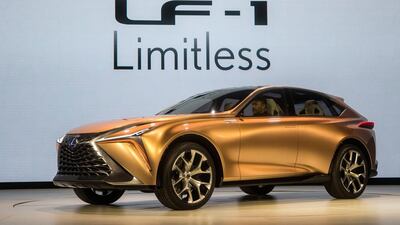China will cut the import duty on passenger cars to 15 per cent in a move that gives a boost to makers of luxury autos such as BMW and Toyota’s Lexus unit.
The State Council, China’s cabinet, has decided to reduce the levy from the current 25 per cent that has been in place for more than a decade, according to people familiar with the plan, who asked not to be identified as the information isn’t public.
A reduction in import duty follows a truce between US President Donald Trump’s administration and Chinese officials as they seek to defuse tensions and avert an all-out trade war. While the levy reduction could be claimed in some quarters as a concession to Mr Trump and will be a boon to US carmakers such as Tesla and Ford, the move will also end up benefiting European and Asian manufacturers from Daimler to Toyota.
_______________
Read more:
Tesla creates new car firm in China
New Chinese car factory revels in remoteness
_______________
China announced May 18 that it would end its anti-dumping and anti-subsidy investigation into imports of US sorghum, citing “public interest”. That move, coupled with recent steps including restarting a review of Qualcomm’s application to acquire NXP Semiconductors, signal a conciliatory stance from the Chinese side.
China has argued its plan to reduce import tariffs on foreign vehicles is long-standing and rejected previous efforts by Mr Trump to claim credit for it.
In particular, high-end cars will feel the effects of a tariff cut because less of their production has moved locally. For example, Lexus would benefit as the only premium Japanese marque that doesn’t manufacture in China or hasn’t announced plans to do so.
Foreign car makers have long pleaded for freer access to China’s car market, while its own manufacturers are expanding abroad. In April, China announced a timetable to permit foreign car makers to own more than 50 per cent of local ventures.
China imported 1.22 million vehicles last year, or about 4.2 per cent of the country’s total sales of about 28.9 million automobiles. At the Boao Forum in April, President Xi Jinping reiterated China’s commitment to reduce import tariffs on vehicles.

